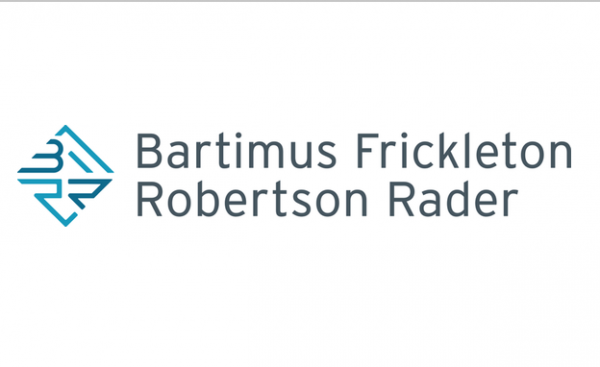
Most companies strive to adhere to the laws and regulations set forth by the government. In general, companies prioritize compliance when it comes to government contracts, programs, and funds.
However, not all companies are dedicated to doing the right thing—some attempt to exploit loopholes and cross ethical lines. When these outliers commit fraud against the government, there are serious consequences for taxpayers, the government, and our communities at large.
Fraud against the government isn’t a new concept—it’s something we can trace back to ancient civilization. Whether through deceptive trades, tax evasion, or mishandling of funds, individuals and entities have sought financial gains at the expense of others throughout history.
In this blog, we will explore the historical basis for the qui tam False Claims Act and discuss everything you should know about bringing these cases to light.
The False Claims Act
The False Claims Act allows individuals to take legal action on behalf of the government when there is evidence of fraud against the government. This frequently involves employees who hold insider knowledge about the inner workings of a company.
The History of the False Claims Act
The False Claims Act is a federal law enacted in 1863 during the American Civil War. This act, commonly known as the “Lincoln Law,” was passed in response to rampant fraud against the government during this time.
Private contractors were engaging in fraudulent practices by overcharging the government for substandard goods (or, in some instances, failing to deliver goods at all). For example, instead of delivering gunpowder to the Union Army, contractors would deliver boxes full of sawdust.
This blatant fraud extended to nearly all materials of the war—the government was purchasing defective rifles, rotting ships, cavalry that didn’t exist, and more. This quickly drained government resources and undermined the war effort.
Lincoln signed the original False Claims Act into law to combat these fraudulent practices against the government.
What the False Claims Act Does
While substantial revisions and amendments have been made since the original False Claims Act, the core principles remain the same. Its purpose is to protect the government against fraud through:
Establishing Liability and Penalties
The False Claims Act holds individuals and entities accountable for knowingly falsifying government claims for financial gain. The act mandates a penalty of triple the amount of damages caused by the false claims, in addition to penalties for each fraudulent claim submitted.
Qui Tam
The qui tam False Claims Act allows individuals who know about fraudulent claims to file lawsuits on behalf of the government. Additionally, the law provides protections and financial incentives for individuals to bring forward cases.
Reasons to Bring Forward a Case of Fraud
If you have evidence of fraud against the government, there are several reasons to consider bringing forward a case:
Financial Reward
Qui tam actions under the False Claims Act allow the individuals who pursue these cases (also referred to as “whistleblowers”) to receive financial compensation.

Whistleblowers typically earn a percentage of the recovered funds, which vary per case. Percentages generally range from about 15–30% and vary depending on the whistleblower’s level of involvement in the case. The more work a whistleblower does, the more substantial the reward.
Legal Protection
Qui tam provides legal safeguards to protect whistleblowers from retaliation. This includes:
Employment Protection
Employers are prohibited from seeking retaliation against a whistleblower for reporting fraud. It is illegal for employers to take any of the following actions based on an employee’s disclosure:
- Termination
- Demotion
- Harassment
- Other discriminatory practices
Legal Support
If an employer does take action against you for reporting fraud, you may have the right to pursue action against the employer.
Section 3730(h) of the False Claim Act states, “Any employee, contractor, or agent shall be entitled to all relief necessary to make that employee, contractor, or agent whole, if that employee, contractor, or agent is discharged, demoted, suspended, threatened, harassed, or in any other manner discriminated against…”
Efforts to make the individual “whole” may include:
- Reinstatement of the same seniority status held by the employee
- Double back pay
- Compensation for damages as a result of the discrimination (including legal costs and attorney’s fees)
Anonymity
A whistleblower can remain anonymous during the initial stages of a case. When the case is filed, only the government and your attorneys will know about it. As investigations start taking place, your identity will be kept confidential.

However, it’s important to know that complete anonymity is not guaranteed. Eventually, the identity of a whistleblower is often revealed as the case unfolds.
Doing What Is Right
If you know about fraud against the government, reporting it is the right thing to do. By pursuing these cases, you not only uphold personal integrity and professional ethics, but you are:
- Promoting honesty and uncovering illicit activities
- Safeguarding the public interest by ensuring taxpayer money is allocated appropriately
- Contributing to a fair and just system
- Advancing justice by holding wrongdoers accountable
Choosing to pursue a case under the qui tam False Claims Act is a big decision. Like all litigation, there is a certain amount of risk involved. However, as long as the lawsuit is grounded in fact and not motivated by an improper purpose, retaliation is prohibited.
Industries Where Fraud Is More Likely to Occur
Government fraud can occur in various industries, but some sectors are more susceptible. These industries include:
Healthcare
Government fraud is often aimed at healthcare programs, including Medicare and Medicaid. Examples of fraud in these industries include:
- Billing for unnecessary procedures, tests, or services
- Billing for a more expensive service than what was provided
- Billing for services that were not provided
- Double billing (submitting multiple claims for one service)
- Altering medical records to support false billing claims
- Healthcare providers receiving “kickbacks” or payments in exchange for referrals or prescribing specific medications/services
- Falsifying patient eligibility information to qualify for reimbursement
Defense and Military Contracting
Fraudulent activities in military contracts are one of the main reasons the qui tam False Claim Act was established, and it remains one of the top reasons the law is in place today. Common acts of fraud in this industry include:
- Overcharging for goods or services
- Submitting false claims for services or work not completed
- Providing goods that do not meet contract requirements
- Manipulating the bidding process to ensure specific companies secure contracts
- Submitting fraudulent claims from subcontractors
- Misrepresenting costs or financial information
Research and Grants
Fraud in research and grants can happen in both scientific and academic fields. Examples of research and grant fraud include:
- Falsifying or manipulating data to secure grants
- Misusing grant money for purposes other than what was approved by the funding agency
- Overestimating costs to secure additional funding
- Failing to disclose conflicts of interests
- Failure to conduct research as outlined
The Process of Qui Tam Litigation
Qui tam cases are not always easy, but they can be worthwhile. The process of qui tam litigation involves 3 essential steps:
1. Involving an Experienced Qui Tam Attorney
If you know of government fraud, the first step is to seek the assistance of a qualified qui tam attorney to handle your case. Your attorney will file the complaint, and the investigation process will begin.

2. Government Review and Investigation
After your claim has been filed, the government will review the case. At this point, they will either choose to intervene and take over the case themselves or choose to step back and allow you and your attorney to take the case forward.
3. Legal Proceedings
If the government chooses to intervene, the government will handle the case. If the government does not intervene, you will continue to be involved in the case.
Eventually, a trial will take place, or a settlement will be reached. This process can take many years, but the whistleblower will receive a reward if fraud is proven.
Contact Bartimus Frickleton Robertson Rader for More Information on the Qui Tam False Claims Act
If you know of government fraud, it’s important to find an experienced qui tam attorney to handle your case.
When we represent a client under the False Claims Act, we devote the time, resources, and experience for the best possible result. Our attorneys are dedicated to investigating cases the right way—by methodically working through each case to achieve the best possible outcome.
To get in contact with an attorney today, use our virtual case tool or contact our office at (913) 266-2300 to speak with one of our team members.
The above is not intended to be legal advice. Each individual case is different and must be analyzed on its own set of facts and circumstances. If you believe you may have a case, it is critically important that you timely contact a lawyer to ensure your rights are protected.


